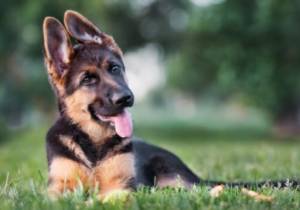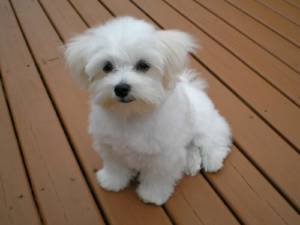How To Identify A Dog Being Clingy?
There are many ways as to what a clingy dog means. They start to show some signs like always following you around when you are at home or not wanting to leave even if you are going to the bathroom or constantly demanding for attention.
This clingy behaviour of dogs can look at cute at times but it can get annoying especially when it happens all the time all of a sudden or when you just need some space. Clinginess may just be a phase your dog could be going through or it might have a much bigger problem than attention seeking or it could be just be the breed your dog belongs to.
Dog breeds that are Clingy:
As we said earlier, some dogs are clingy just by their breed. Such dogs are called Velcro dogs. As the pet name suggests, they are extra clingy! You want to go to the bathroom? They’ll come with you. You want to get up and walk around? Oh you might just trip on them because THEY ARE ALWAYS THERE! They are like shadows that wouldn’t leave no matter how dark it gets.
Some of the dogs that are the real velcro dogs are as follows :
-
VIzsla –

To top our list, we have Vizsla. They are the biggest velcro dogs ever to come across. Vizsla is a Hungarian breed. They will be your ride and die buddies till the end of time. You can take them wherever you want and will be more than happy to go as long as they are not away from you.
-
Golden Retriever –
Golden Retrievers are the ultimate cuddlers. They want to be a part of everything you are doing. They are also called “Happy Dogs” and are great stress busters. A lot of corporate companies like to keep Golden Retrievers because they are easy to cuddle and play around with.
-
German Shepherd –

It might come as a surprise to a lot of people but German Shepherd are velcro dogs. They might not look like they need a lot of attention but they actually do! They are also called Guard Dogs because they love their humans so much that they are possessive about them. To them, their humans are unsafe if they are not around them at all times!
-
Pugs –

It’s only imperative by their huge eyes always on their humans that they are always going to be on your side. They are known for their flat nose and wrinkly face. They might look sad because of their wrinkly face but they are the happiest to be around you.
-
Doberman Pinscher –

With their sharp features, you can’t tell that they are velcro dogs. They are also called the Guard Dogs. They can’t guard you if they are not stuck to you with a glue 24×7. They are supremely loyal to their humans and will be around till time does them apart.
-
Border Collie –

Border Collie is the biggest people pleaser of all times. Their life revolves around you. Want an ultimate cuddle partner? They are the perfect choice.
-
Labrador Retriever –

Labrador Retriever are also the service dogs just like the Golden Retrievers. Your lap is their favourite spot in the whole world and wouldn’t miss it for anything. They also tend to grow really heavy but can you tell them? NO!
-
Maltese –

They are best when it comes to cuddling. No matter how much they grow, they will be travel sized. It’s easy to carry them around and hence easier to keep them happy at all times. They will always be your little fur ball.
Some other causes of clingy behavior in dogs:
-
Separation Anxiety –
When we mentioned earlier that there could be a much bigger problem than just attention seeking, we were referring to separation anxiety. It is not very uncommon in dogs to separation anxiety as dogs tend to get attached to their owners irrespective of their breed.
However, there is a difference between being Clingy and Separation Anxiety. They might sound similar but there is a major difference which depends on how a dog reacts when you are not around them. It is normal for a dog to be a little upset when you are gone and be around you when you come back. What escalates to separation anxiety is when they start panicking about their not being around. Separation anxiety will make the dog indulge in destructive activities when they are not around you which could be constant whining, excessive chewing, urinating and defecating in the house (something that they wouldn’t do otherwise), etc. There is no one reason that could explain the separation anxiety in dogs. It could be like they have recently had a traumatic experience like someone’s death or fear of someone or just because they are excessively attached to you.
Sudden clinginess could be a sign of separation anxiety and it’s better to seek professional help. However, not at all times a dog will have separation anxiety. At times it could just be a phase. But when the clinginess is prolonged that when you can start suspecting separation anxiety.
-
Changes In Routine –
Recent change in routine can also cause your dog to be clingy. Pets always need to have a routine. They always want to know what to expect. So a sudden change in your family like someone dying, someone shifting or moving to a new place can also contribute to your dog being clingy.
-
Aging –
The older we get, the closer we want to be, works with humans and dogs. When they realise they are growing old they tend to get a little more cuddly than usual. There could be chances that they might lose their hearing or vision which can also make them want to be closer to their owner for emotional support. You must remember that in its old years, they need you more than ever. Try to make it sleep closer to your bed so they feel that you are there for them.
If you notice your dog bumping into furniture and acting confused, take it to the vet immediately.
Why is my Dog so Clingy at night?
It is not very uncommon for newly adopted or young dogs to get restless at night. If you notice your dog constantly changing positions, walking around your side or trying to wake you up while you are sleeping at night, there is a possibility that your dog is feeling lonely and anxious. Mostly it could be because of no activities around at night. For young dogs, this could be something they are still getting used to and doesn’t last more than a few days. There are some other few reasons that can make an adult dog wanting to be around you, which are discussed as follows.
Causes of your Dog’s Clingy Behavior at Night:
-
Too Much Energy –
Any dog that is hyperactive will get restless at night which would further make them anxious. This would make them want to play with you even when you are in deep sleep!
-
Pain –
Click edit button to change this text. Lorem ipsum dolor sit amet, consectetur adipiscing elit. Ut elit tellus, luctus nec ullamcorper mattis, pulvinar dapibus leo.
-
Past Experiences –
If you have recently adopted a dog from a rescue shelter, they might get a little clingy with you in reference to their past experience with the people it was living with. If they have had a traumatic life in the past like being tied to for prolonged periods or neglected or abused by their previous owners, they will take time to adjust to the new environment.
How to Make a Dog less Clingy?
There are some basic exercises that you can do to help your dog with clingy behaviour. They are as follows :
- Spread his treats around the house. This will make them go away from you for a while. Keep doing this exercise regularly so they learn to be less clingy.
- Don’t be too loud when you come home or leave. If your absence too evident all of a sudden, this will make them anxious.
- When you return home, don’t be too loud with your greetings. Try to ignore them for a while.
- Keep repeating sit and stay commands. Practice these regularly and keep them at a short distance from you.
- Don’t reward their clingy behaviour. Try to ignore your dog when it becomes clingy.
- If your dog is growing old and seems to be losing vision, try not to change places of the furniture. As if you do, it will make it feel like a new place and will only grow more anxious.
Source –
https://www.petmd.com/dog/behavior/how-manage-clingy-dog-behavior-0
